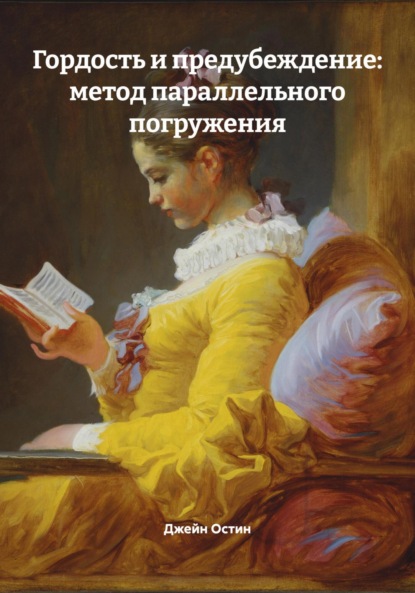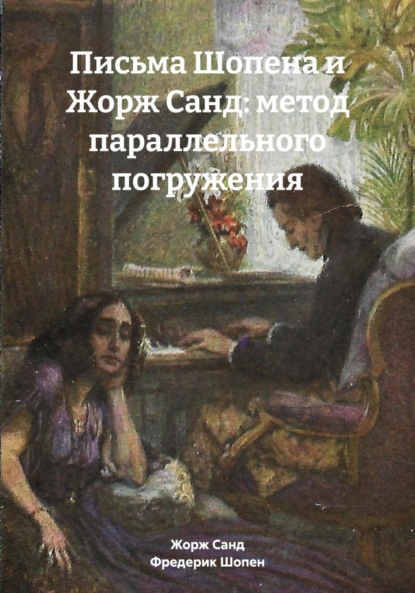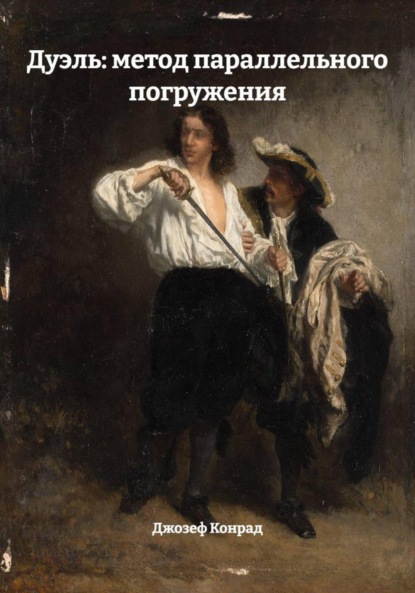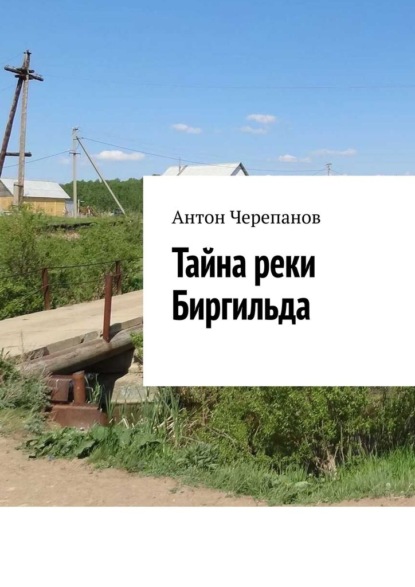Гордость и предубеждение: метод параллельного погружения

- -
- 100%
- +
“What sort of a girl is Miss Darcy?”
He shook his head. “I wish I could call her amiable. It gives me pain to speak ill of a Darcy; but she is too much like her brother,—very, very proud. As a child, she was affectionate and pleasing, and extremely fond of me; and I have devoted hours and hours to her amusement. But she is nothing to me now. She is a handsome girl, about fifteen or sixteen, and, I understand, highly accomplished. Since her father’s death her home has been London, where a lady lives with her, and superintends her education.”
After many pauses and many trials of other subjects, (После множества пауз и попыток заговорить на другие темы; pauses – паузы, trials of other subjects – попытки поговорить о других темах.) Elizabeth could not help reverting once more to the first, and saying,— (Элизабет не смогла удержаться и снова вернулась к первой теме, сказав —; could not help reverting – не могла не вернуться, reverting – возвращение.)
“I am astonished at his intimacy with Mr. Bingley. («Меня поражает его близость с мистером Бингли; astonished – поражена, intimacy – тесная дружба.) How can Mr. Bingley, who seems good-humour itself, (Как может мистер Бингли, который кажется сама доброжелательность; good-humour itself – сама доброта, само добродушие.) and is, I really believe, truly amiable, (и который, как я действительно верю, по-настоящему милый человек; truly amiable – искренне приятный, милый.) be in friendship with such a man? (быть в дружбе с таким человеком?; in friendship with – в дружеских отношениях с.) How can they suit each other? (Как они могут подходить друг другу?; suit each other – совпадать по духу, характеру.) Do you know Mr. Bingley?” («Вы знакомы с мистером Бингли?»; do you know – вы знаете, знакомы ли.)
“Not at all.” («Совсем нет»; not at all – вовсе нет, нисколько.)
After many pauses and many trials of other subjects, Elizabeth could not help reverting once more to the first, and saying,—
“I am astonished at his intimacy with Mr. Bingley. How can Mr. Bingley, who seems good-humour itself, and is, I really believe, truly amiable, be in friendship with such a man? How can they suit each other? Do you know Mr. Bingley?”
“Not at all.”
“He is a sweet-tempered, amiable, charming man. («Он добродушный, милый, обаятельный человек; sweet-tempered – добродушный, мягкий по характеру, amiable – приятный, дружелюбный, charming – обаятельный.) He cannot know what Mr. Darcy is.” (Он просто не знает, каков на самом деле мистер Дарси; cannot know – не может знать, what… is – каков он.)
“Probably not; but Mr. Darcy can please where he chooses. («Возможно, и нет; но мистер Дарси умеет нравиться там, где захочет; can please – может понравиться, where he chooses – если сам того пожелает.) He does not want abilities. (У него есть способности; does not want – не испытывает недостатка в, abilities – способности.) He can be a conversible companion if he thinks it worth his while. (Он может быть приятным собеседником, если посчитает это достойным своего времени; conversible companion – человек, с которым приятно беседовать, worth his while – стоящее его усилий и времени.)
“He is a sweet-tempered, amiable, charming man. He cannot know what Mr. Darcy is.”
“Probably not; but Mr. Darcy can please where he chooses. He does not want abilities. He can be a conversible companion if he thinks it worth his while.
Among those who are at all his equals in consequence, (Среди тех, кто хотя бы немного равен ему по положению; equals in consequence – равные по значимости, положению.) he is a very different man from what he is to the less prosperous. (он совсем не такой, как с теми, кто ниже по статусу; very different man – совсем другой человек, less prosperous – менее состоятельные люди.) His pride never deserts him; (Гордость никогда не покидает его; never deserts – никогда не оставляет.) but with the rich he is liberal-minded, just, sincere, rational, honourable, (но с богатыми он широких взглядов, справедлив, искренен, разумен, благороден; liberal-minded – терпимый, открытый, just – справедливый, sincere – искренний, rational – разумный, honourable – благородный.) and, perhaps, agreeable,—allowing something for fortune and figure.” (и, возможно, приятный – если сделать скидку на его богатство и внешность; agreeable – приятный, allowing something for – делая поправку на, fortune and figure – состояние и внешность.)
Among those who are at all his equals in consequence, he is a very different man from what he is to the less prosperous. His pride never deserts him; but with the rich he is liberal-minded, just, sincere, rational, honourable, and, perhaps, agreeable,—allowing something for fortune and figure.”
The whist party soon afterwards breaking up, (Партия в вист вскоре распалась; whist party – игра в вист, breaking up – распадаться, расходиться.) the players gathered round the other table, (игроки собрались вокруг другого стола; gathered round – собрались вокруг.) and Mr. Collins took his station between his cousin Elizabeth and Mrs. Philips. (а мистер Коллинз занял место между своей кузиной Элизабет и миссис Филипс; took his station – занял своё место.) The usual inquiries as to his success were made by the latter. (Обычные вопросы о его успехе задала последняя, то есть миссис Филипс; inquiries as to – вопросы о, the latter – последняя из упомянутых.) It had not been very great; he had lost every point; (Он не слишком преуспел: проиграл во всех партиях; not very great – не особо великий, lost every point – проиграл всё.) but when Mrs. Philips began to express her concern thereupon, (но когда миссис Филипс начала выражать по этому поводу своё сочувствие; express concern – выражать обеспокоенность, thereupon – по этому поводу.) he assured her, with much earnest gravity, that it was not of the least importance; (он заверил её с величайшей серьёзностью, что это не имеет ни малейшего значения; assured her – заверил её, earnest gravity – серьёзность, not of the least importance – не имеет никакого значения.) that he considered the money as a mere trifle, (что он считает деньги сущей мелочью; mere trifle – пустяк, мелочь.) and begged she would not make herself uneasy. (и умолял её не беспокоиться; begged – просил, умолял, make herself uneasy – волноваться, беспокоиться.)
The whist party soon afterwards breaking up, the players gathered round the other table, and Mr. Collins took his station between his cousin Elizabeth and Mrs. Philips. The usual inquiries as to his success were made by the latter. It had not been very great; he had lost every point; but when Mrs. Philips began to express her concern thereupon, he assured her, with much earnest gravity, that it was not of the least importance; that he considered the money as a mere trifle, and begged she would not make herself uneasy.
“I know very well, madam,” said he, “that when persons sit down to a card table they must take their chance of these things,— («Я прекрасно знаю, мадам, – сказал он, – что, когда люди садятся за карточный стол, они должны быть готовы к таким вещам; sit down to a card table – садиться играть в карты, take their chance – принять риск, смириться с возможным исходом.) and happily I am not in such circumstances as to make five shillings any object. (и к счастью, я не в таком положении, чтобы придавать значение пяти шиллингам; not in such circumstances – не в таких обстоятельствах, make five shillings any object – считать пять шиллингов значимой суммой.) There are, undoubtedly, many who could not say the same; (Без сомнения, есть много тех, кто не мог бы сказать того же; undoubtedly – несомненно, could not say the same – не могли бы сказать то же самое.) but, thanks to Lady Catherine de Bourgh, I am removed far beyond the necessity of regarding little matters.” (но, благодаря леди Кэтрин де Бёр, я избавлен от необходимости обращать внимание на мелочи; removed far beyond – нахожусь далеко от, necessity of regarding – нужды обращать внимание, little matters – мелкие вопросы, пустяки.)
“I know very well, madam,” said he, “that when persons sit down to a card table they must take their chance of these things,—and happily I am not in such circumstances as to make five shillings any object. There are, undoubtedly, many who could not say the same; but, thanks to Lady Catherine de Bourgh, I am removed far beyond the necessity of regarding little matters.”
Mr. Wickham’s attention was caught; (Мистер Уикхэм обратил внимание; attention was caught – внимание было привлечено.) and after observing Mr. Collins for a few moments, (и после того как несколько секунд понаблюдал за мистером Коллинзом; observing – наблюдая, for a few moments – несколько мгновений.) he asked Elizabeth in a low voice whether her relations were very intimately acquainted with the family of De Bourgh. (он спросил Элизабет вполголоса, очень ли близко её родственники знакомы с семьёй де Бёр; in a low voice – тихо, intimately acquainted – близко знакомы, relations – родственники, family of De Bourgh – семья де Бёр.)
Mr. Wickham’s attention was caught; and after observing Mr. Collins for a few moments, he asked Elizabeth in a low voice whether her relations were very intimately acquainted with the family of De Bourgh.
“Lady Catherine de Bourgh,” she replied, “has very lately given him a living. («Леди Кэтрин де Бёр, – ответила она, – совсем недавно дала ему приход; very lately – совсем недавно, given him a living – предоставила ему приходскую должность.) I hardly know how Mr. Collins was first introduced to her notice, (Я почти не знаю, как мистер Коллинз впервые попал ей на глаза; hardly know – почти не знаю, introduced to her notice – представлен её вниманию.) but he certainly has not known her long.” (но он, безусловно, знаком с ней совсем недолго; certainly – определённо, not known her long – недолго её знает.)
“You know of course that Lady Catherine de Bourgh and Lady Anne Darcy were sisters; («Вы, конечно, знаете, что леди Кэтрин де Бёр и леди Анна Дарси были сёстрами; of course – конечно, were sisters – были сёстрами.) consequently that she is aunt to the present Mr. Darcy.” (следовательно, она тётя нынешнего мистера Дарси; consequently – следовательно, aunt to – тётя кому-либо, present Mr. Darcy – нынешний мистер Дарси.)
“No, indeed, I did not. («Нет, честно говоря, я этого не знала; indeed – действительно, did not – не знала.) I knew nothing at all of Lady Catherine’s connections. (Я вообще ничего не знала о связях леди Кэтрин; knew nothing at all – совершенно ничего не знала, connections – родственные или социальные связи.) I never heard of her existence till the day before yesterday.” (Я вообще не слышала о её существовании до позавчерашнего дня; never heard of – никогда не слышала, till the day before yesterday – до позавчера.)
“Lady Catherine de Bourgh,” she replied, “has very lately given him a living. I hardly know how Mr. Collins was first introduced to her notice, but he certainly has not known her long.”
“You know of course that Lady Catherine de Bourgh and Lady Anne Darcy were sisters; consequently that she is aunt to the present Mr. Darcy.”
“No, indeed, I did not. I knew nothing at all of Lady Catherine’s connections. I never heard of her existence till the day before yesterday.”
“Her daughter, Miss de Bourgh, will have a very large fortune, («Её дочь, мисс де Бёр, получит очень большое состояние; very large fortune – большое наследство, значительное состояние.) and it is believed that she and her cousin will unite the two estates.” (и считается, что она и её кузен соединят два поместья; it is believed – считается, предполагается, unite the two estates – объединить два поместья.)
This information made Elizabeth smile, (Эта информация заставила Элизабет улыбнуться; made… smile – вызвало улыбку.) as she thought of poor Miss Bingley. (когда она подумала о бедной мисс Бингли; thought of – подумала о.) Vain indeed must be all her attentions, (Напрасны, без сомнения, все её старания; vain – тщетны, бесполезны, attentions – старания, попытки привлечь внимание.) vain and useless her affection for his sister and her praise of himself, (напрасна и бесполезна её привязанность к его сестре и её восхваление его самого; affection – привязанность, praise – похвала.) if he were already self-destined to another. (если он уже сам предназначил себя другой; self-destined – сам себе предопределил, выбрал заранее.)
“Her daughter, Miss de Bourgh, will have a very large fortune, and it is believed that she and her cousin will unite the two estates.”
This information made Elizabeth smile, as she thought of poor Miss Bingley. Vain indeed must be all her attentions, vain and useless her affection for his sister and her praise of himself, if he were already self-destined to another.
“Mr. Collins,” said she, “speaks highly both of Lady Catherine and her daughter; («Мистер Коллинз, – сказала она, – отзывается с восхищением и о леди Кэтрин, и о её дочери; speaks highly of – говорит с похвалой, both… and – как о… так и о…) but, from some particulars that he has related of her Ladyship, (но, судя по некоторым подробностям, которые он рассказал о её светлости; particulars – подробности, детали, related – рассказал, her Ladyship – её светлость, вежливая форма обращения к дворянке.) I suspect his gratitude misleads him; (я подозреваю, что его благодарность сбивает его с толку; suspect – подозревать, gratitude – благодарность, misleads – вводит в заблуждение.) and that, in spite of her being his patroness, (и что, несмотря на то, что она его покровительница; in spite of – несмотря на, patroness – покровительница.) she is an arrogant, conceited woman.” (она надменная, самодовольная женщина; arrogant – высокомерная, conceited – самовлюблённая.)
“Mr. Collins,” said she, “speaks highly both of Lady Catherine and her daughter; but, from some particulars that he has related of her Ladyship, I suspect his gratitude misleads him; and that, in spite of her being his patroness, she is an arrogant, conceited woman.”
“I believe her to be both in a great degree,” replied Wickham; («Я считаю, что она в значительной мере и то, и другое, – ответил Уикхэм; believe her to be – считаю её, both – и то и другое (т.е. надменной и самодовольной), in a great degree – в большой степени.) “I have not seen her for many years; (Я не видел её много лет; have not seen – не видел, for many years – в течение многих лет.) but I very well remember that I never liked her, (но я отлично помню, что она мне никогда не нравилась; remember – помню, never liked – никогда не любил.) and that her manners were dictatorial and insolent. (и что её манеры были властными и дерзкими; dictatorial – властные, insolent – наглые, дерзкие.) She has the reputation of being remarkably sensible and clever; (У неё репутация исключительно разумной и умной женщины; reputation – репутация, remarkably sensible – поразительно разумная, clever – умная.) but I rather believe she derives part of her abilities from her rank and fortune, (но я скорее считаю, что часть её способностей исходит от её положения и богатства; derive from – происходить от, rank and fortune – титул и состояние.) part from her authoritative manner, (частично – от её властной манеры; authoritative manner – повелительная манера поведения.) and the rest from the pride of her nephew, (а остальное – от гордости её племянника; the rest – остальное, pride of her nephew – гордость её племянника.) who chooses that everyone connected with him should have an understanding of the first class.” (который хочет, чтобы все, кто с ним связан, были людьми высшего ума; connected with him – связаны с ним, understanding of the first class – ум высшего разряда, выдающиеся способности.)
“I believe her to be both in a great degree,” replied Wickham; “I have not seen her for many years; but I very well remember that I never liked her, and that her manners were dictatorial and insolent. She has the reputation of being remarkably sensible and clever; but I rather believe she derives part of her abilities from her rank and fortune, part from her authoritative manner, and the rest from the pride of her nephew, who chooses that everyone connected with him should have an understanding of the first class.”
Elizabeth allowed that he had given a very rational account of it, (Элизабет признала, что он дал весьма разумное объяснение этому; allowed – признала, rational account – разумное объяснение.) and they continued talking together with mutual satisfaction (и они продолжили беседовать с обоюдным удовольствием; mutual satisfaction – взаимное удовольствие.) till supper put an end to cards, (пока ужин не положил конец карточной игре; put an end to – положить конец.) and gave the rest of the ladies their share of Mr. Wickham’s attentions. (и предоставил остальным дамам их долю внимания со стороны мистера Уикхэма; share of attention – доля внимания.) There could be no conversation in the noise of Mrs. Philips’s supper party, (Невозможно было вести беседу в шуме званого ужина у миссис Филипс; supper party – званый ужин.) but his manners recommended him to everybody. (но его манеры располагали к нему всех без исключения; recommended him – вызывали симпатию.) Whatever he said, was said well; (Всё, что он ни говорил, было сказано хорошо; whatever – всё, что ни…, was said well – звучало достойно.) and whatever he did, done gracefully. (а всё, что он делал, делал изящно; done gracefully – сделано с грацией.) Elizabeth went away with her head full of him. (Элизабет уехала, думая только о нём; head full of him – он полностью занимал её мысли.) She could think of nothing but of Mr. Wickham, and of what he had told her, all the way home; (Всю дорогу домой она не могла думать ни о чём, кроме мистера Уикхэма и того, что он ей рассказал; could think of nothing but – думала только о, all the way home – всю дорогу домой.)
Elizabeth allowed that he had given a very rational account of it, and they continued talking together with mutual satisfaction till supper put an end to cards, and gave the rest of the ladies their share of Mr. Wickham’s attentions. There could be no conversation in the noise of Mrs. Philips’s supper party, but his manners recommended him to everybody. Whatever he said, was said well; and whatever he did, done gracefully. Elizabeth went away with her head full of him. She could think of nothing but of Mr. Wickham, and of what he had told her, all the way home;
But there was not time for her even to mention his name as they went, (но у неё не было даже возможности упомянуть его имя по дороге; mention his name – упомянуть его имя.) for neither Lydia nor Mr. Collins were once silent. (поскольку ни Лидия, ни мистер Коллинз не замолкали ни на минуту; not once silent – ни на миг не смолкали.) Lydia talked incessantly of lottery tickets, of the fish she had lost and the fish she had won; (Лидия без умолку говорила о карточной лотерее, о «рыбках», которые она проиграла, и о тех, которые выиграла; talked incessantly – болтала без остановки, lottery tickets – карточная лотерея, fish – жетоны в игре.) and Mr. Collins, in describing the civility of Mr. and Mrs. Philips, (а мистер Коллинз, описывая учтивость мистера и миссис Филипс; civility – вежливость.) protesting that he did not in the least regard his losses at whist, (уверяя, что его совсем не огорчили проигрыши в вист; did not regard – не придаёт значения, losses at whist – проигрыш в вист.) enumerating all the dishes at supper, (перечисляя все блюда, поданные на ужин; enumerating – перечисляя.) and repeatedly fearing that he crowded his cousins, (и неустанно выражая опасения, что он стесняет своих кузин; crowded – стесняет.) had more to say than he could well manage before the carriage stopped at Longbourn House. (имел так много сказать, что едва успел всё выговорить до остановки кареты у дома в Лонгборне; more to say than he could manage – хотел сказать больше, чем успевал.)
But there was not time for her even to mention his name as they went, for neither Lydia nor Mr. Collins were once silent. Lydia talked incessantly of lottery tickets, of the fish she had lost and the fish she had won; and Mr. Collins, in describing the civility of Mr. and Mrs. Philips, protesting that he did not in the least regard his losses at whist, enumerating all the dishes at supper, and repeatedly fearing that he crowded his cousins, had more to say than he could well manage before the carriage stopped at Longbourn House.
CHAPTER XVII (ГЛАВА СЕМНАДЦАТАЯ)
ELIZABETH related to Jane, the next day, what had passed between Mr. Wickham and herself. (На следующий день Элизабет рассказала Джейн о том, что произошло между ней и мистером Уикхэмом; related to – рассказала, передала, what had passed – что произошло.) Jane listened with astonishment and concern: (Джейн слушала с изумлением и тревогой; astonishment – удивление, concern – беспокойство.) she knew not how to believe that Mr. Darcy could be so unworthy of Mr. Bingley’s regard; (ей было трудно поверить, что мистер Дарси может быть настолько недостоин расположения мистера Бингли; unworthy of regard – недостоин уважения, симпатии.) and yet it was not in her nature to question the veracity of a young man of such amiable appearance as Wickham. (и всё же она по натуре не могла сомневаться в правдивости молодого человека с такой приятной внешностью, как у Уикхэма; question the veracity – ставить под сомнение правдивость, amiable appearance – приятная наружность.) The possibility of his having really endured such unkindness was enough to interest all her tender feelings; (Возможность того, что он действительно перенёс такую несправедливость, уже сама по себе вызывала сочувствие у её нежной натуры; endured – перенёс, unkindness – недоброжелательность, жестокость, tender feelings – мягкие, сочувственные чувства.) and nothing therefore remained to be done but to think well of them both, (и, следовательно, ничего не оставалось, как думать хорошо о них обоих; nothing remained to be done – ничего больше нельзя было сделать.) to defend the conduct of each, (защищать поведение каждого; conduct – поведение.) and throw into the account of accident or mistake whatever could not be otherwise explained. (и списывать на случайность или ошибку всё, что не поддавалось другому объяснению; throw into the account – приписывать, учитывать, accident or mistake – случайность или ошибка.)







